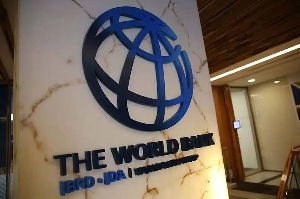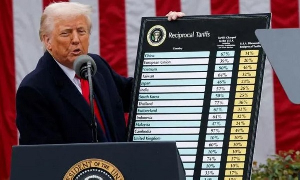It is a paradox that a continent that is often described as having very little to offer, can produce such consistent and persistent giants that take on the world every day. The narrative of Zeepay is simple and yet powerful: it is an African fintech start up that is changing lives and making a positive impact on the continent on a daily basis.
As a continent, Africa’s billion consumers have emerged in several markets, making it the most exciting beginning in the new 100 years we just entered. As I roam through Africa, I have come across a striking narrative that stays outside the experience of the average urban home.
It is a simple truth, that 80 percent of the population live in rural communities and have to travel long distances for access to financial services. What caught my eye while traveling to these rural areas, is that many people walk for over 20 kilometers to get to the nearest bank or financial services point to pick up remittances of amounts as low as US$100 from their friends and family abroad.
It poses a huge challenge and yet we are in a new millennium where problems like these shouldn’t exist. Given these pressing socio-economic issues, I was excited when I came across the Zeepay narrative which had established a real solution.
Zeepay is a start-up that has come into the ecosystem to disrupt the archaic process of walking long distances to withdraw money. Many people in the rural areas also have to deal with encountering poor customer service at some point in their withdrawal process, a problem they would never encounter with Zeepay.
Zeepay changed the narrative by making it possible for remittance receivers to now receive their remittances from money transfer companies such MoneyGram, Taptap, Small World, Ria, Transfast, among many others. People are able to receive their funds directly onto their Zeepay mobile money wallets instantly and also have the option of withdrawing from a local agent nearby.
What I found most interesting is that the start-up developed an engineering system that makes it possible for the receiver to not only receive in their Zeepay mobile wallet but also be able to withdraw from all mobile money merchants regardless of which network they are using whether it is MTN, AirtelTigo or Vodafone Cash. This powerful narrative is what makes Zeepay a consumer choice brand.
After five days of travel across Ghana, Ivory Coast and Guinea, I now find that the narrative of Zeepay is not only centralized in and confined to Ghana but can also be identified in many other African countries as far as Mozambique. In all of these corners of Africa, Zeepay’s partners aim to be the solution to the problem of financial inclusion.
Zeepay is providing this service to millions of Africans through a simple, disruptive force led by a group of young disruptive men and women. A surprising statistic that I have come across in my research into the challenger fintech is that the mean average age of a ‘zeepayian’ is only 28 but what I found to be most incredible is that while the company has only 23 full-time staff but currently serving over 2.4 million Africans across the continent.
On the other hand, banks have been offering remittances for over 30 years and have not seen or been able to provide this level of support or convenience to consumers.
The million-dollar question then is, what comes next for Africa and how will young Africans help improve the narrative of mother Africa? I believe Zeepay is a hot number to follow and a true beacon of hope in the digital age.
I believe 2021 will see a lot more excitement from Zeepay as it takes on more and opens up the economy with new and exciting products such as Beneficiary Micro Insurance. This new product is centered around the remittance receiver and gives senders the opportunity to purchase life insurance for as low as 2.50 pesewas that provide receivers with a cover of up to GH¢5000 monthly.
In this period of COVID-19, the introduction of this service is timely and exciting and comes as a relief to the continent and to the people who need it most.
Press Releases of Monday, 22 March 2021
Source: Zeepay













